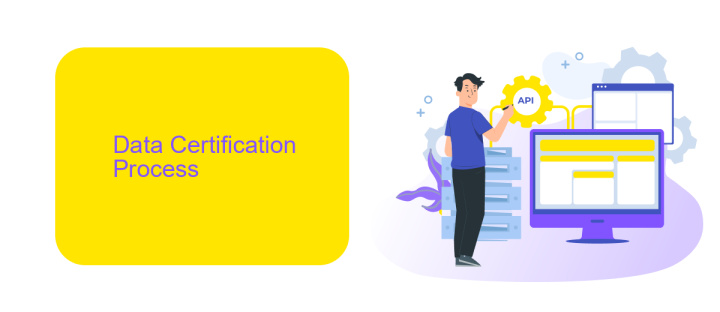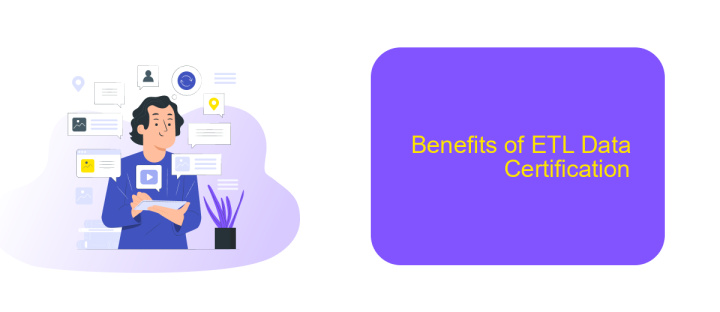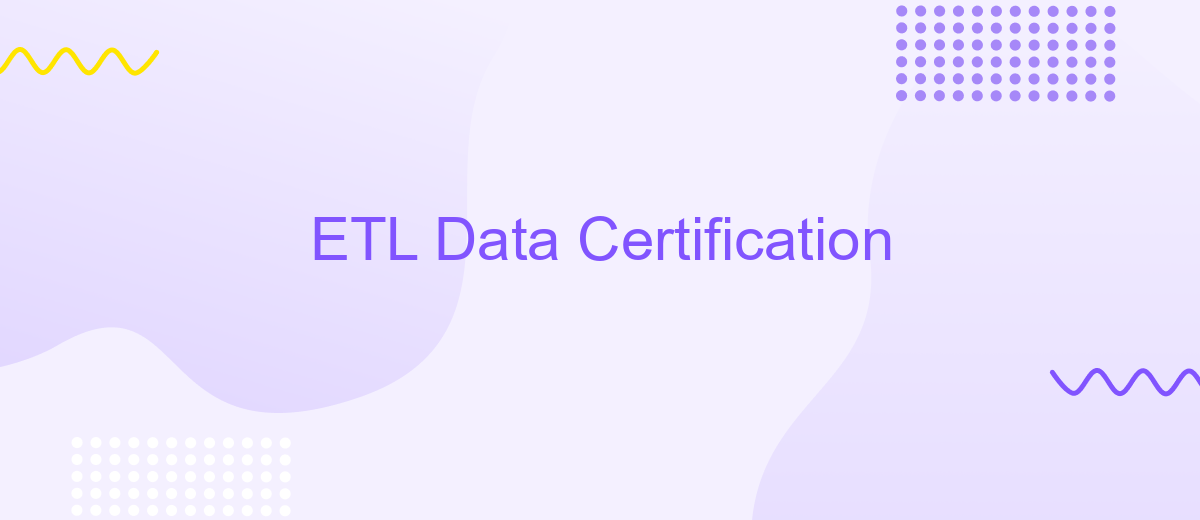ETL Data Certification
ETL Data Certification is a crucial process in ensuring the accuracy, reliability, and quality of data as it moves through the stages of Extraction, Transformation, and Loading (ETL). This certification validates that data has been processed correctly and meets the required standards, which is essential for informed decision-making and maintaining data integrity in any organization.
Introduction
ETL (Extract, Transform, Load) Data Certification is a critical process that ensures the accuracy, consistency, and reliability of data as it moves through various stages of integration. In today's data-driven world, businesses rely heavily on accurate data to make informed decisions. Proper certification of ETL processes helps in maintaining data integrity and trustworthiness.
- Ensures data accuracy and consistency
- Maintains data integrity across different stages
- Facilitates compliance with regulatory standards
- Improves decision-making capabilities
Using advanced tools like ApiX-Drive can simplify the ETL certification process by automating data integration and ensuring seamless connectivity between various data sources. ApiX-Drive offers a user-friendly interface that allows businesses to set up integrations without needing extensive technical knowledge, thus ensuring that data flows smoothly and remains accurate throughout its lifecycle. This not only saves time but also enhances the overall reliability of the data.
Data Certification Process

The data certification process begins with the identification and documentation of data sources. This involves cataloging all the datasets that will be integrated into the ETL pipeline. The next step is to validate the data quality by conducting thorough checks for accuracy, completeness, and consistency. These checks ensure that the data meets the required standards before it is processed further. Additionally, the process includes setting up automated data validation rules to continuously monitor data quality over time.
Once the data sources are validated, the integration phase begins. This phase can be streamlined using tools like ApiX-Drive, which facilitate seamless integration between various data sources and the ETL system. ApiX-Drive helps in automating data transfers, reducing manual intervention, and minimizing the risk of errors. After integration, the data undergoes transformation processes to align with the target schema and business requirements. Finally, the certified data is loaded into the destination system, ensuring it is ready for analysis and reporting. Regular audits and updates to the certification process are essential to maintain data integrity and reliability over time.
Challenges and Best Practices

ETL Data Certification presents several challenges, ranging from data quality issues to integration complexities. Ensuring data accuracy and consistency is crucial for reliable analytics and decision-making. Additionally, the integration of various data sources can be cumbersome, often requiring specialized tools and expertise.
- Data Quality: Regularly validate and clean data to avoid inaccuracies.
- Integration: Use robust integration tools like ApiX-Drive to streamline data flow between systems.
- Documentation: Maintain comprehensive documentation for data sources, transformations, and processes.
- Security: Implement stringent security measures to protect sensitive data.
- Scalability: Ensure your ETL processes can scale with growing data volumes.
Adopting best practices like automated data validation, using reliable integration services such as ApiX-Drive, and maintaining thorough documentation can significantly mitigate these challenges. By prioritizing data quality and security, organizations can enhance the reliability and efficiency of their ETL processes, ultimately leading to more informed decision-making and better business outcomes.
Benefits of ETL Data Certification

ETL Data Certification provides numerous advantages for organizations looking to ensure the accuracy and reliability of their data. By certifying ETL processes, companies can significantly enhance the quality and consistency of their data, leading to more informed decision-making and better business outcomes.
One of the primary benefits of ETL Data Certification is the reduction of errors and inconsistencies in data. Certified ETL processes ensure that data is accurately extracted, transformed, and loaded, minimizing the risk of data corruption and enhancing overall data integrity. This is particularly important for businesses that rely heavily on data-driven insights.
- Improved data accuracy and reliability
- Enhanced compliance with data governance standards
- Streamlined integration processes with tools like ApiX-Drive
- Greater confidence in data-driven decision-making
In addition, ETL Data Certification can help organizations meet regulatory requirements and adhere to industry standards. This not only reduces the risk of legal issues but also builds trust with clients and stakeholders. By leveraging services like ApiX-Drive, companies can further streamline their integration processes, ensuring seamless data flow across various platforms and systems.
Conclusion
ETL Data Certification plays a pivotal role in ensuring the reliability and accuracy of data integration processes. Through rigorous validation and systematic testing, organizations can confidently rely on their data for critical decision-making. The certification process not only enhances data quality but also fortifies the overall data governance framework, thereby minimizing risks associated with data inconsistencies and errors.
Leveraging tools and services like ApiX-Drive can significantly streamline the integration and certification process. ApiX-Drive offers robust solutions for automating data workflows, ensuring seamless data transfers between various platforms. By incorporating such services into the ETL Data Certification process, organizations can achieve higher efficiency and accuracy, ultimately leading to more reliable and actionable insights. Embracing these technologies is essential for staying competitive in today’s data-driven landscape.
FAQ
What is ETL Data Certification?
Why is ETL Data Certification important?
What are the key components of ETL Data Certification?
How can automation help in ETL Data Certification?
What are the common challenges in ETL Data Certification?
Apix-Drive will help optimize business processes, save you from a lot of routine tasks and unnecessary costs for automation, attracting additional specialists. Try setting up a free test connection with ApiX-Drive and see for yourself. Now you have to think about where to invest the freed time and money!

